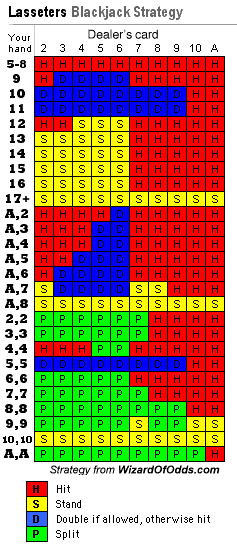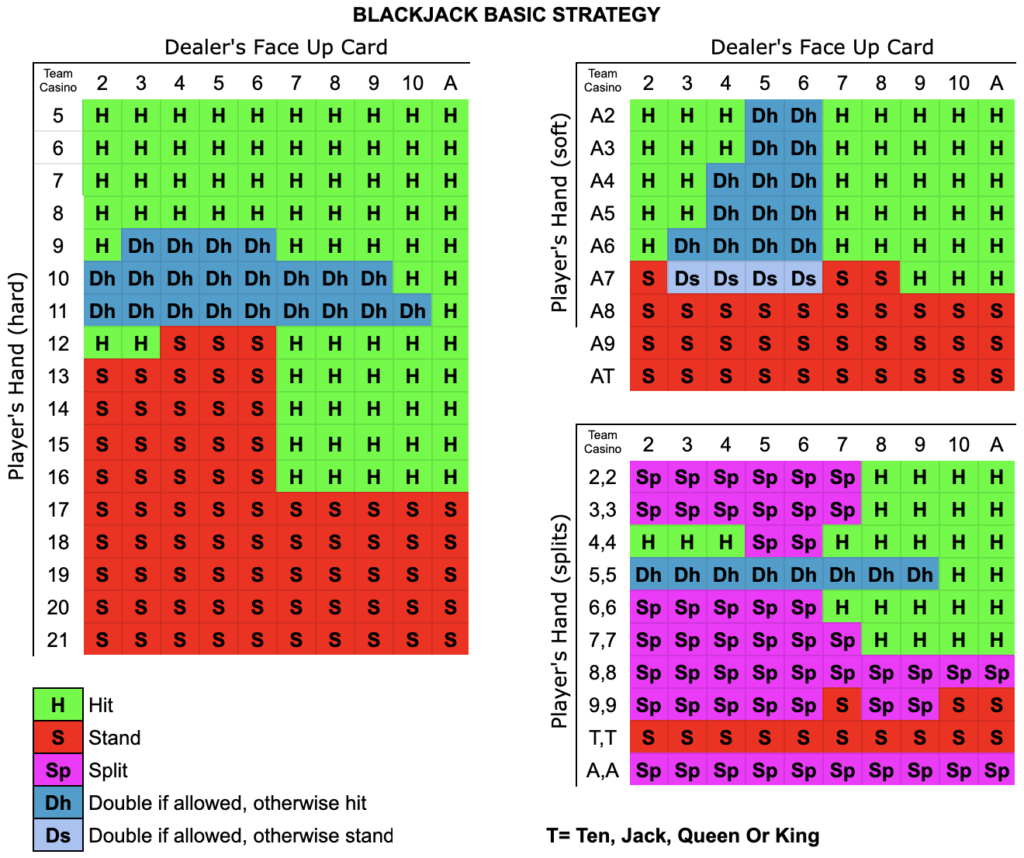Blackjack Split Rules
Resplit - This very common rule allows splitting pairs in one hand, usually, up to three times. In blackjack, the standard rule is that if the player is dealt a pair of identically ranked initial cards, known as a pair, the player is allowed to split them into separate hands and ask for a new second card for each while placing a full initial bet identical to the original wager with each. Blackjack Split Rules Resplit - This very common rule allows splitting pairs in one hand, usually, up to three times. As a result, up to four hands can be created from one. Some casinos only allow one Split and a few allow six or infinite Splits. A blackjack, or natural, is a total of 21 in your first two cards. A blackjack is therefore an Ace and any ten-valued card, with the additional requirement that these be your first two cards. If you split a pair of Aces for example, and then draw a ten-valued card on one of the Aces, this is not a blackjack, but rather a total of 21.
Nearly every gambling game has some combination that is statistically very unlikely, but still possible. That perfect outplay of cards, whatever it might be. It’s the kind of thing that you keep in the back of your mind because for the most part it is fun to do. You think to yourself as you flip over your hand each time, “Could this hand be the one?”
The blackjack split rules are interesting: if you keep getting dealt pairs, can you keep on splitting them until you run out of table space? This case study presents a couple interesting questions:

- What is the maximum number of times you can split in blackjack?
- Given the above, what is the best possible split blackjack hand?
Blackjack Splitting Rules
The rules regarding splitting vary from casino to casino. Here is a general rundown.

- Most casinos will allow two splits; some will not.
- Some casinos will allow a double down after a split.
- Most casinos will not allow any more cards after a double down.
- Most casinos will only allow you one card after aces have been split.
Naturally, armed with the above information, you want to be playing at the types of casinos that allow you to do the following:
- Split twice and then double down
The Best Possible Hand in Blackjack
It would go something like this:
- The dealer is showing a six or some bust card.
- You are dealt, say, fours – your bet is $10.
- You split these, and the fours both receive fours, which you spilt again – your bet is now $40.
- All these (4) hands with fours, all receive fours. You split again – your bet is now $80.
- You double down on eight hands – your bet is now $160.
- The dealer hits on 16, busts, and all your hands win.
Where your initial bet was for $20, you end up raking in $300. This example was purposely done without using aces to illustrate that it ultimately does not matter if you are splitting aces, because split aces do not payout 2:3 like a natural blackjack does. So even if we had split aces here, the payout would still be the same. In addition, since it’s already been stated that aces can only receive one more card after they are split, aces are in not going to give you the maximum amount of winnings possible in this scenario.
“But Atlantic City does it Differently.”
Interestingly, Atlantic City does not allow a split after the initial split, but it does allow a double down. This stands in direct opposition to Las Vegas, where as discussed the rules state that you can split again after the initial split.
If you would like some more information on splitting in blackjack, check out our complete blackjack guide to splitting. It has everything you ned to know, and even some fun extras tutorials to really drive the point home.
Simon
Blackjack Splitting Strategy

Splitting Aces Rule
Simon is an overactive gambler and the Staff Writer here at Silver Oak. He loves casino bonuses, online slots, and using the em dash too often. Currently, he rests his typing hands in Vancouver, Canada.